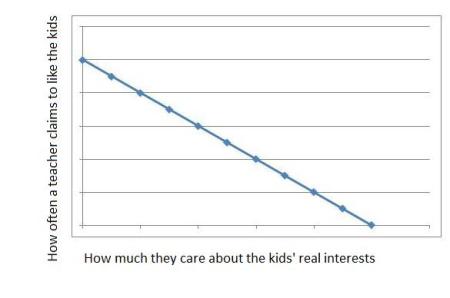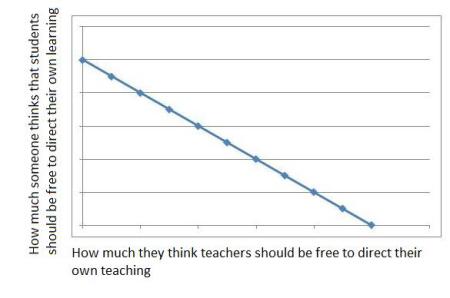Now we do talk first about the disease in cases of bodily breakdown; and that for an excellent reason. Because, though there may be doubt about the way in which the body broke down, there is no doubt at all about the shape in which it should be built up again. No doctor proposes to produce a new kind of man, with a new arrangement of eyes or limbs. The hospital, by necessity, may send a man home with one leg less: but it will not (in a creative rapture) send him home with one leg extra. Medical science is content with the normal human body, and only seeks to restore it…
…in bodily ills there is [no] difference about the ultimate ideal. The patient may or may not want quinine; but he certainly wants health. No one says “I am tired of this headache; I want some toothache,” or “The only thing for this Russian influenza is a few German measles,” or “Through this dark probation of catarrh I see the shining paradise of rheumatism.” …
Chesterton (1910)
I went to a party not so long ago and met a couple of medical students. Among other things I was fascinated to find out that they have been told that when seeing a patient they should ask:
“How do you feel about this appointment?”
and
“What are your expectations about this appointment?”
I suppose I shouldn’t be shocked that the trend that says professionals are meant to care more about people’s feelings than about their professional responsibilities has spread to medicine. However, thinking about it, I don’t think there is any danger of it getting anywhere near as bad as in education. In medical matters we might like the idea of doctors being compassionate individuals who care deeply about our feelings, but we remain absolutely clear on the fact that the main thing we want from them is to be restored to health. Faced with a serious illness we would rather be treated by Gregory House than Patch Adams. We can clearly see that a doctor’s bedside manner; approachability, even their compassion, are side issues compared with the effectiveness of their treatment.
Unfortunately, while we all have a good picture of what it is to be healthy, we don’t seem to share the same kind of insight into what it means to be educated. Newman (1873) asked:
If a healthy body is a good in itself, why is not a healthy intellect? and if a College of Physicians is a useful institution, because it contemplates bodily health, why is not an Academical Body, though it were simply and solely engaged in imparting vigour and beauty and grasp to the intellectual portion of our nature?
People have to ask themselves what education is for, in a way they would never ask what health is for. People speculate that education is for the sake of the economy; for social cohesion; for personal fulfilment; for gaining qualifications; for training revolutionaries, or for the preservation of tradition. As in so many other areas where the aims are less clear than medicine: “some men are aiming at cures which other men would regard as worse maladies; are offering ultimate conditions as states of health which others would uncompromisingly call states of disease.” Chesterton (1910)
Some of the things schools do now, such as encouraging students to make their own choices about illegal drug taking, taking kids skateboarding, or teaching them to express themselves and to value all opinions (especially their own) are to me little more that a diseases on the body of the school. Other parts of what schools do, no matter how desirable, are clearly not part of the aim of a school. So for instance, at an INSET recently, we were set the task of identifying from a list what was the purpose of a form tutor. Options like “to be friendly” or “to value each student as an individual” were put forward. All very worthy, but clearly these are virtues in a form tutor, akin to bedside manner in a doctor, not the purpose of a form tutor.
The other side effect of the vagueness of aims in education is that quackery and nonsense can never die, whereas ineffective medical procedures and treatments can, at least some of the time, be exposed. All that happens when a teaching method is found not to work in some way is that the purpose of it is adjusted. Bad teaching methods can first be put forward as a way to improve academic learning. When this doesn’t happen they can be put forward as a way of developing skills for adulthood. When this doesn’t happen they can be put forward as a way of socialising students for life within the school. When this doesn’t happen they can be put forward as a way of encouraging creativity, and so on indefinitely. By contrast, it is obviously unlikely that patients would be encouraged to keep taking medicine that simply doesn’t work by redefining the disease. Nobody is told: “well, this medicine hasn’t cured your rheumatism, but keep taking it, it might cure your broken leg”. Similarly, no doctor would view all “experimental” procedures as axiomatically better than established ones or be told that if a patient wasn’t getting better that the problem was not the treatment but their own unrealistic expectation that their patients should get better.
Teaching is just too far from being a science. The judgements cannot be clinical. We can imagine areas where doctors have to consider their aims (e.g. for procedures such as abortion or cosmetic surgery, or for conditions where there is no treatment or where treatments have significant side-effects) but most of the time they know what they are aiming for. By contrast, teachers have to make value judgements before they even start and continually revise them because a healthy intellect is harder to conceptualise than a healthy body. Teachers have to decide what an educated man or woman looks like, in order to teach their students the kind of knowledge and skills they will need to become one.
Then, of course, they will be told to stop trying and just entertain the students and raise their self-esteem instead.
References
Chesterton, G.K., What’s Wrong With the World?, 1910
Newman, John Henry, The Idea of a University, University of Notre Dame, 1873





We Are The People We’ve Been Waiting For
November 28, 2009I recently received the following email:
I’m happy to oblige, James. Here is my review:
Why Lord Puttnam Can Stick His Stupid Documentary Up His Arse
Despite the hype in some of the publicity, “We Are The People We’ve Been Waiting For” is not in any way a film. The Guardian may have distributed it, but didn’t even see fit to mention it on the front cover. (Curiously today’s Guardian did give almost all the space above its masthead to publicising its free “Kings and Queens Wallchart”.) “We Are The People We’ve Been Waiting For” is simply a party political broadcast for the ignorance party. It might be messianic about education, but education is about “skills and attitudes” not learning. As a result the traditional school, built as it was for getting the masses to learn knowledge, is utterly outdated. “Doing reading, writing and arithmetic” is mentioned only in a derogatory way. Even “sitting down” is repeatedly condemned.
A succession of voices, who are either representatives of the education establishment or minor celebrities, promote a familiar case. The argument is the usual one for dumbing down. The future is uncertain, therefore all knowledge is outdated and so children must be prepared for their lives by becoming “adaptable”, “flexible” and everything other than knowledgeable. Knowledge is conformity, ignorance is individual. A system that aspires to ensuring that all should have knowledge is repressive. A system that tests that knowledge is wasting time on rote memorisation and missing the big picture of a future in which nobody needs to know anything. The important thing is for students to “question the world around them”, which for some reason is incompatible with being taught how to answer those questions. Children must be interested, creative and have high self-esteem. The last hundred years of educational theory never happened. Education now is like it was in the Victorian era. We have to adopt the ideas that were popular in the US in the twenties and the UK in the sixties because these ideas are new; Summerhill School (founded 1921) is presented as an innovation. Education is about drawing out from children what is already in them rather than giving them new knowledge. Everything must be relevant. Vocational skills aren’t valued enough. If students haven’t learnt enough then it was a mistake to try and teach them. If students haven’t enjoyed learning then it’s pointless. All must have prizes. Henry Winkler and Germaine Greer say so.
Bollocks.
What makes it worse is the use of children. Child after child spouts clichés about education. How else can the filmmakers pretend their crap is for the sake of the children? Much concern is shown about the failures of the present system. Uneducated children have been failed by the system, nobody doubts this. But it takes the insanity of the zealot to blame educational failure on the academic focus of the education system, when anybody familiar with our schools can see that there is no academic focus for these children. This is a rant against authority in education, by the kind of people who do have authority in education. This is an argument for failed orthodoxy by presenting it as a radical departure. This is a polemic against academic standards by the kind of people who have already lowered the standards to nothing. This is an attack on the curriculum by the people who gave us the curriculum we have. This is an attempt to blame the failure of the educational system on the very values the system has already abandoned. This is a prolonged assault on a strawman education system that not only doesn’t exist, but would be far better than what we have now if it did exist. This is shameful lies combined with self-righteous sermons.
I am prepared to give some of the participants the benefit of the doubt, they might not have known how their contributions would be used, but too often the people who are already failing the next generation are given a platform to call for more of the same and explain how progressive, radical and compassionate it is to do so. It is such a colossal attempt to shift blame that you almost expect some of the interviewees to suggest that the Jews (or perhaps the freemasons or the Catholic Church) are behind our education system.
My hope is that for every Guardian reader who wastes their time on this call for ignorance justified as compassion, there are a dozen other readers who take the same amount of time to discuss with their children the content of the Kings and Queens Wallchart. The people I am waiting for are people who know enough history to have learnt from it.
Share this:
Posted in Commentary | 18 Comments »